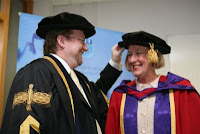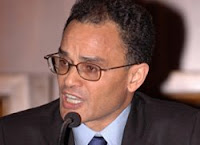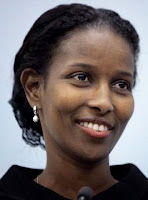Rarely have our religious co-citizens achieved such a level of unanimity. Everyone, but everyone, now knows that the Broadcasting Commission of Ireland are a bunch of secularist fundamentalists who are overinterpreting a very reasonable law in a politically correct attempt to banish religion from the public sphere in Ireland.
Nobody, but nobody, disagrees with this take on events. ...
Well ... except me (and maybe a couple of other mad anti-religious militants).
Don't get me wrong, I'm not going to defend the BCI. In fact, they made a right unholy mess of it. Where they went wrong, however, was not their decision to ban the ad, but in how they attempted to communicate their view. Because for all the talk about how the BCI interpreted the law in some ludicrously strict way, it is hard to see how they could have read the applicable legislation any other way. The act of banning the ad was legally justified, logical and perhaps even inevitable. The BCI made a pig's dinner of it, but at least they dealt with the issue honestly -- which is more than can be said of RTÉ.
A bit of history might help illustrate the BCI's problem:
The relevant legislation (i.e. The Broadcasting Authority Act of 1960) was drafted and passed at a time when the power of the Catholic Church was at its very peak in Ireland. Even the most radically pro-church commentator would have to admit that no law directly affecting religious matters could have been passed at that time that did not have the consent of the main Church in the country. And yet the law, as passed, seems clearly and baldly anti-religious:
20.4 The Authority shall not accept any advertisement which is directed
towards any religious or political end or has any relation to any industrial
dispute.
A bit of a mystery, isn't it, how such a provision could have got onto the Statutes Book at such a time? There's absolutely nothing elsewhere in the act or anywhere else in contemporary legislation that softens the provision. Ads intended to serve religious ends are simply banned. All of them. How could the Church have allowed that? Did they take their eye off the ball in some triumphalist act of negligence?
The fog of incomprehension rises when you remember that the Church at the time couldn't even imagine having to stoop to advertising their wares. They had an automatic audience of more than 95% of the population of the country every week, and could rely on free publicity from all public and private media. The purpose of the legislation was clear: to stop anyone else from advertising religious wares; that is to say to protect their monopoly position.
The same provision was quietly confirmed unamended in the 1988 Radio and Television Act (as Section 10 paragraph 3), which would suggest that even in the late 1980's there was no opposition to the advertising ban.
An amendment was made to allow the Irish Catholic (amongst other publications) to be advertised in 2001, but the provision is largely intact.
Have a look at the provision again. What do you think it means by "directed towards a religious end"?
Now Veritas sells religious goods (primarily religious books) is wholly owned by the Catholic Church and states on its foundational documents that its main purpose is to spread the word of the Catholic faith.
Upon my soul, I can't see any wriggle room. How could an ad produced by Veritas for Veritas be directed at anything other than a religious end? I swivel on my chair a bit looking up at the landlord's halo over my desk, pick up my litter bin and walk, pray for vision but I still can't come up with a way of getting any Veritas ad through the eye of that particular needle.
If you can do better, please feel free to post below.
Understandably, RTÉ don't see anything wrong with ad. I say 'understandably' because (a) they will get money for it and (b) nobody else sees much wrong with the ad either (including me). Understandably too, they wish to absolve themselves of the blame for the non-broadcast of the ad, which they can only do by referring the thing to the BCI.
That's when things seem to have gone seriously wrong. The BCI seems to have fumbled the ball very, very badly. Understandably embarrassed by their duty of enforcing very clearly unpopular legislation, they seemed to pretend that the ad could somehow be altered to put it within the law.
The BCI seems to have based their willingness to negotiate on the decision made by their sister organisation, the Broadcasting Complaints Commission, a couple of months ago. That decision mentions the script of the ad, perhaps giving a casual observer the impression that if the ad hadn't mentioned its website and hadn't made an allusion to "what Holy Communion and Confirmation are really about" then it may have got through the loop.
A little careful reading of the decision would have clarified that, even according to the BCC (not known for their anti-religious rantings) the main problem was the nature and purpose of the advertiser and of what it was selling, and that the bits of the script merely reinforced their decision. And rightly so.
The BCI made two mistakes. Firstly, they were not strong enough in their interpretation of the law, suggesting only that the ad may have violated the law (allowing the biased observer to infer that they could have decided otherwise, but instead bloodymindedly decided on the strictest possible interpretation). The second thing they did wrong was to suggest that negotiation was possible (their offer was not taken up by a presumably delighted Veritas). They may have done this to make themselves look reasonable and amenable, but the opposite was the effect. They looked like they were in the business of censorship, removing "offensive" material. When people (including the vast majority of the non-religious people in Ireland) saw nothing offensive in the text used the immediate assumption was that mad politically correct oversensitivity was at work in the decision.
One thing is clear: RTÉ's behaviour during the course of the controversy was utterly appalling. They acted as the first stone-throwers. With what was almost salacious pleasure, they repeated over and over "what the advert would have sounded like" on radio and television, ostentatiously disowning responsibility for its banning and laying the blame at the door of the BCI. Yet RTÉ knew of the previous BCC decisions on these matters, knew the law (and its utter clarity) and yet abdicated their public service broadcasting responsibility by accepting the ad, forcing the BCI to intervene and then lampooning the decision they should have known was inevitable. They thus also provided very valuable free publicity to Veritas, encouraging others to ignore the law and attempt similar publicity stunts.
If I were on the BCI right now (its membership includes religious conservative luminary, John Waters) I'd be waiting in the long grass for the Montrosers responsible.
Meanwhile, for at least the third time, Veritas are laughing at the public purse paying for their advertising, and the upcoming Bill is due to change the law to allow such (catholic-friendly) advertising but continue to ban explicitly evangelical stuff. After the Veritas scandal, there's not a politician in the country that would have the nerve to reverse the draft change.
Whether this now almost inevitable change in the law is fair to the same evangelicals I'll leave to themselves to judge, but one thing is certain, given that the current legal framework already allows broadcasters to provide free one-sided publicity for the major and minor religious faiths in Ireland, and to do nothing for those either opposed to religion or simply advocating other world views, the provision of fair and equal coverage of perfectly legitimate non and anti-religious views is a very long way off.







